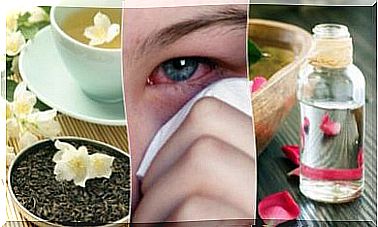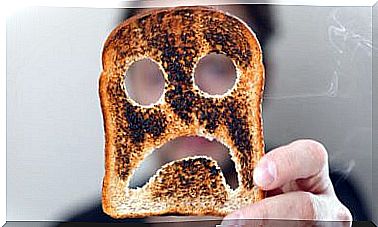How To Sleep Well: 6 Tips For Getting Good Rest
Having a good quality of sleep is a determining factor for optimal physical and mental productivity. Fortunately, there are some healthy tips that can help us sleep well when we are having trouble falling asleep.

Many of us don’t care that much about rest. However, sleeping well is an essential habit to have a good quality of life. It is a critical biological need for the physical and mental processes that influence health.
And if you still have doubts, just ask yourself this question: How do you feel when you are not sleeping well?
The National Sleep Foundation (NSF) talks about minimum and maximum sleep hour ranges based on age, noting that people aged 26 to 64 should sleep between 6 and 9 hours. Reducing this time interferes with important functions of the body.
In addition, as a result, multiple associated problems can develop, such as increased stress, sleep disturbances, body aches and pains, among others. Therefore, it is essential to adopt routines to facilitate greater rest and improve the quality of sleep.
How to sleep well

Modern lifestyle, technologies and professional occupations are some of the factors responsible for insomnia. Many of us are reducing our rest time.
Therefore, it is no wonder that sleep-related disorders are increasing, and productivity is decreasing. But how to avoid this?
1. Eat light in the evening
Eating light in the evening is one of the keys to sleeping well and getting enough rest. A heavy stomach often makes it difficult to fall asleep because we feel too full.
In addition, it is also essential to eat at least two hours before bed, according to Dr Alfonso Pérez, of the Hospital Clínico de Barcelona .
2. Practice yoga
The yoga is one of the most effective relaxation methods to improve sleep quality. However, there is no conclusive research in this regard.
Regular yoga practice, however, showed other health benefits, such as improved flexibility, strengthening muscles and improving mood in people with depression and anxiety, according to this study. from Dr Woodyard.
3. Take care of your rest area
To sleep well, it is important that the sleeping space is appropriate. For example, a noisy, overly lit environment where the temperature is constantly fluctuating will not help. It is therefore necessary to have a pleasant and comfortable bedroom.
Likewise, it is better to avoid using your bedroom as an office or as a place of leisure. You will thus avoid confusion of the brain, which will then understand that this space is dedicated to rest.
4. Avoid stimulating substances
The demands of modern lifestyle lead many people to resort to stimulants to energize the body. While it is true that many of these products help overcome times of depression, excessive consumption can also cause sleep disturbances and other health risks.
The function of this type of substance is in fact to increase the excitation of the nervous system to prolong the state of alert. Thus, to sleep well, it is best to avoid drinking coffee, energy drinks, and other stimulating products, starting in the middle of the afternoon.
5. Take a hot shower
Ironically, the feeling of fatigue associated with exhausting workdays causes insomnia or difficulty falling asleep.
So to relax before bed, try a nice hot shower. It can be a very pleasant time not to think about everyday worries.
6. Listen to relaxing music

Listening to relaxing music at low volume is indeed one of the best tips to relax and sleep well. Today it is easy to find melodies that provide calm and relaxation, and thus help to fall asleep more easily.
Have you had a bad sleep for several nights? Do not hesitate to follow our advice on a daily basis. Although at first a lack of rest is “harmless”, over time this lack can lead to more difficult problems to treat.
Ask for help if the situation drags on
In conclusion, to sleep well, you can help yourself with these 6 effective habits. However, we would also like to warn you that there are many causes for the difficulties and problems associated with sleeping.
Therefore, if your situation does not improve, we recommend to go to the doctor for a proper diagnosis and, if necessary, specific treatment.









